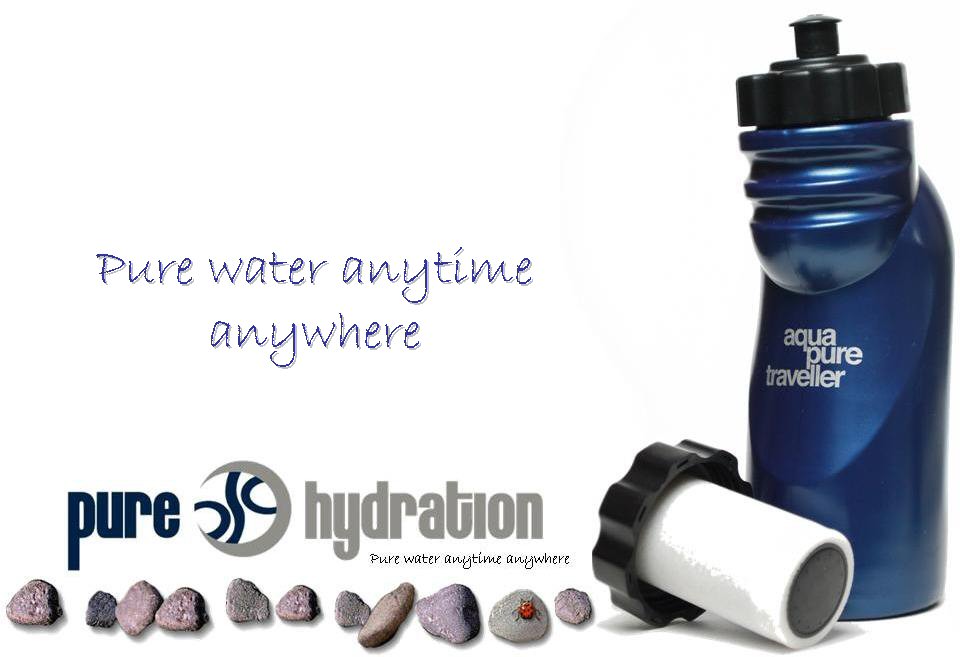About Me
- Aquapure Traveller
- What is it? The Aquapure Traveller is a personal water purifier capable of quickly turning potentially contaminated water sources into clear, clean & safe drinking water, ANYWHERE-ANYTIME. From unregulated tap water in India to a mountain stream in the Himalayas, the Aquapure Traveller is all you’ll need to get your drinking water. Made from the highest quality materials and built to the strictest quality control procedures, the Aquapure Traveller is designed to provide you with purified water again and again wherever you are. THE ULTIMATE WATER PURIFIER What does it do? -Capable of purifying 350 Litres -Kills viruses & bacteria Removes: -Pathogens (including Cryptosporidium & Giardia) -Bad tastes & odours -Chemicals (including VOCs, SOCs) -Heavy metals -Faecal matter
Friday, 20 August 2010
Tuesday, 17 August 2010
The Effects of Bottled Water on the Environment
It is hard to argue the fact that waste management has become a large problem in the world, with landfills growing to enormous sizes and recycling rates remaining dismally low. The number of plastic bottles produced by the bottled water industry and subsequently discarded by consumers has only exacerbated this problem.
According to a 2001 report of the World Wide Fund for Nature (WWF), roughly 1.5 million tons of plastic are expended in the bottling of 89 billion litters of water each year.
Besides the sheer number of plastic bottles produced each year, the energy required to manufacture and transport these bottles to market severely drains limited fossil fuels. Bottled water companies, due to their unregulated use of valuable resources and their production of billions of plastic bottles have presented a significant strain on the environment.
The authors of the WWF report suggested that water bottles be washed and reused in order to lessen their negative impact on the environment. Unfortunately, reusing plastic bottles further compromises the quality of the water, due to the fact that more and more phthalate leaches its way into the water as the bottle gets older. In another suggestion, the authors recommended that bottled water companies use local bottling facilities in order to lessen fuel expenditures for transportation needs. Regrettably, local bottling further compromises water quality due to the reduced health standards for in-state bottled water production and consumption. It seems there is no feasible solution to this problem. The bottled water industry causes a severe strain on the environment, but solutions to this environmental damage significantly lessen the quality of water in the bottles.
According to a 2001 report of the World Wide Fund for Nature (WWF), roughly 1.5 million tons of plastic are expended in the bottling of 89 billion litters of water each year.
Besides the sheer number of plastic bottles produced each year, the energy required to manufacture and transport these bottles to market severely drains limited fossil fuels. Bottled water companies, due to their unregulated use of valuable resources and their production of billions of plastic bottles have presented a significant strain on the environment.
The authors of the WWF report suggested that water bottles be washed and reused in order to lessen their negative impact on the environment. Unfortunately, reusing plastic bottles further compromises the quality of the water, due to the fact that more and more phthalate leaches its way into the water as the bottle gets older. In another suggestion, the authors recommended that bottled water companies use local bottling facilities in order to lessen fuel expenditures for transportation needs. Regrettably, local bottling further compromises water quality due to the reduced health standards for in-state bottled water production and consumption. It seems there is no feasible solution to this problem. The bottled water industry causes a severe strain on the environment, but solutions to this environmental damage significantly lessen the quality of water in the bottles.
Subscribe to:
Comments (Atom)
